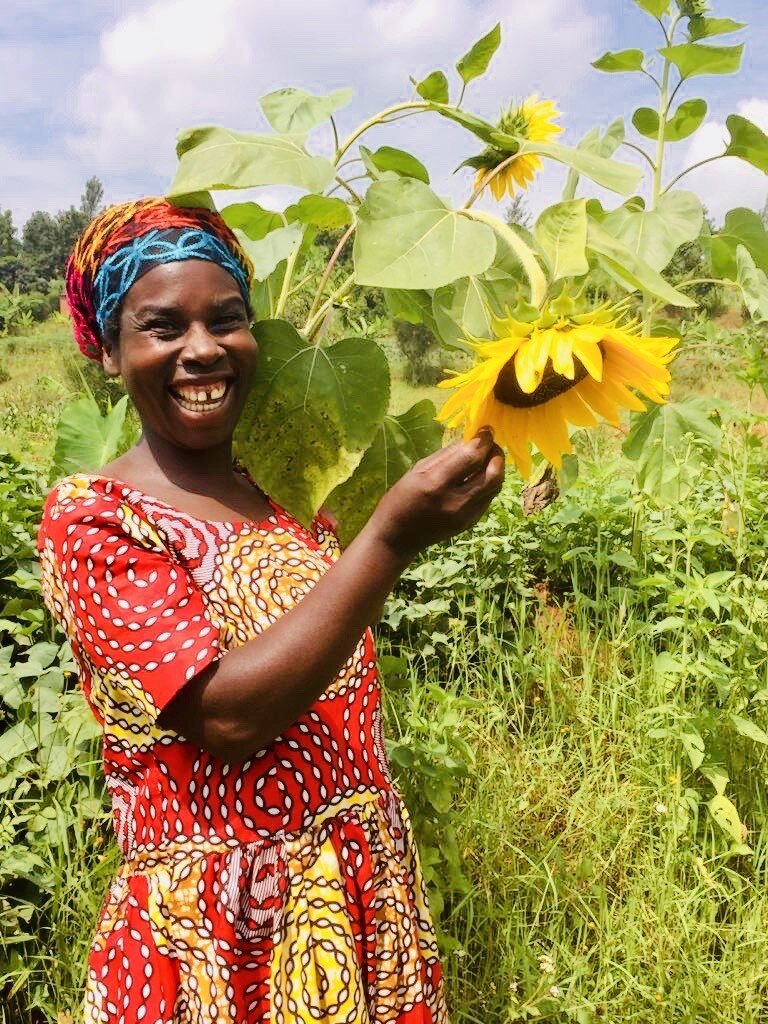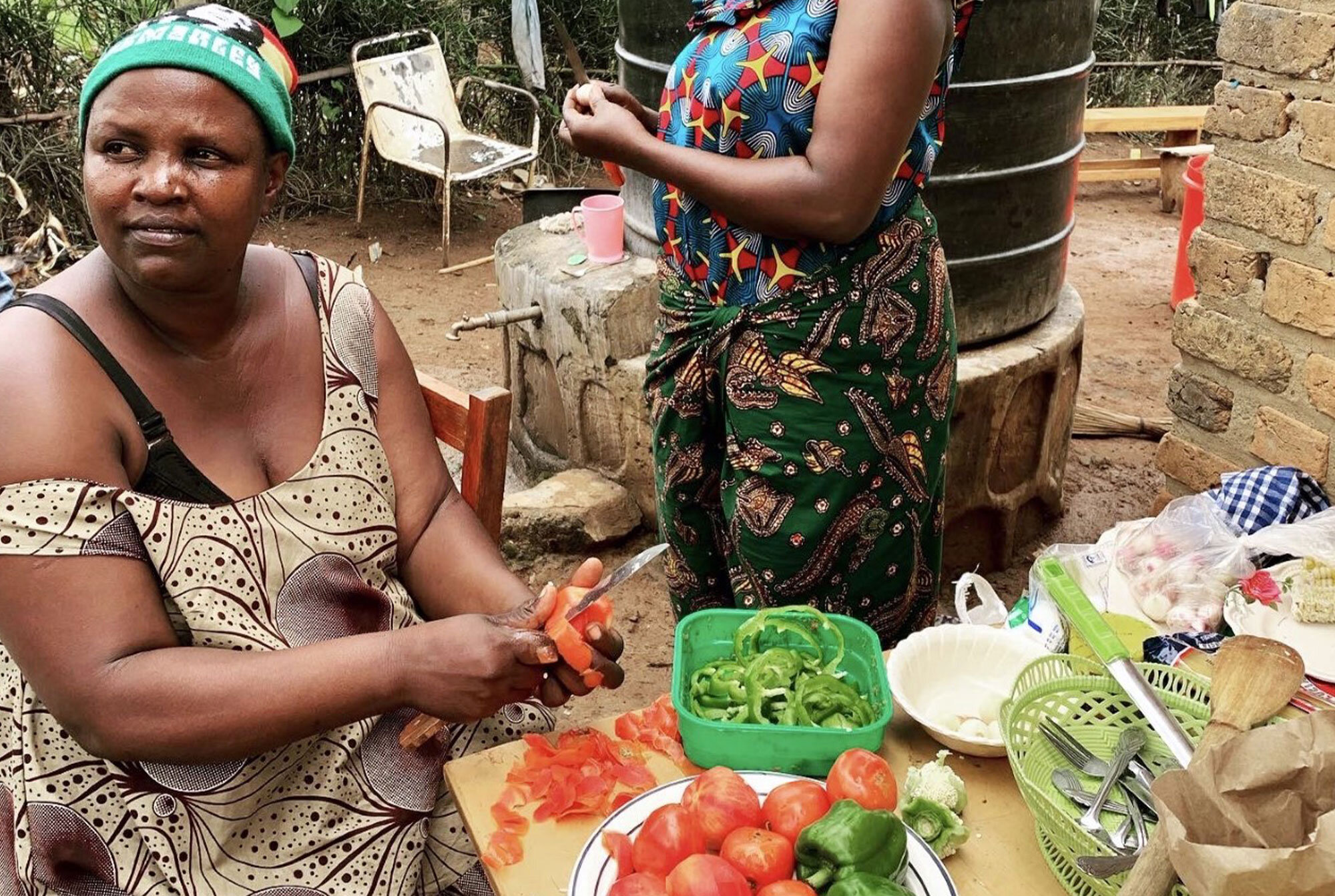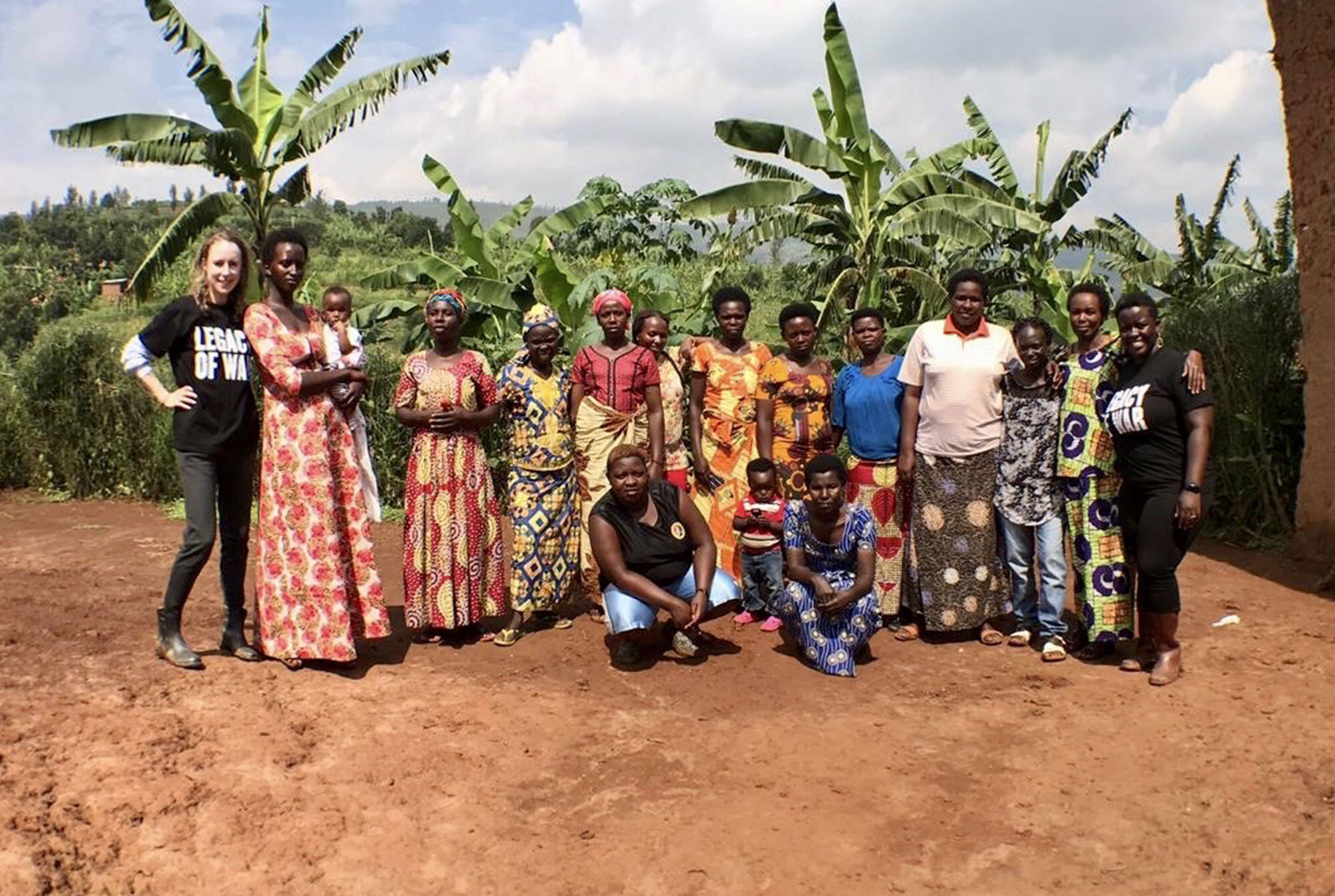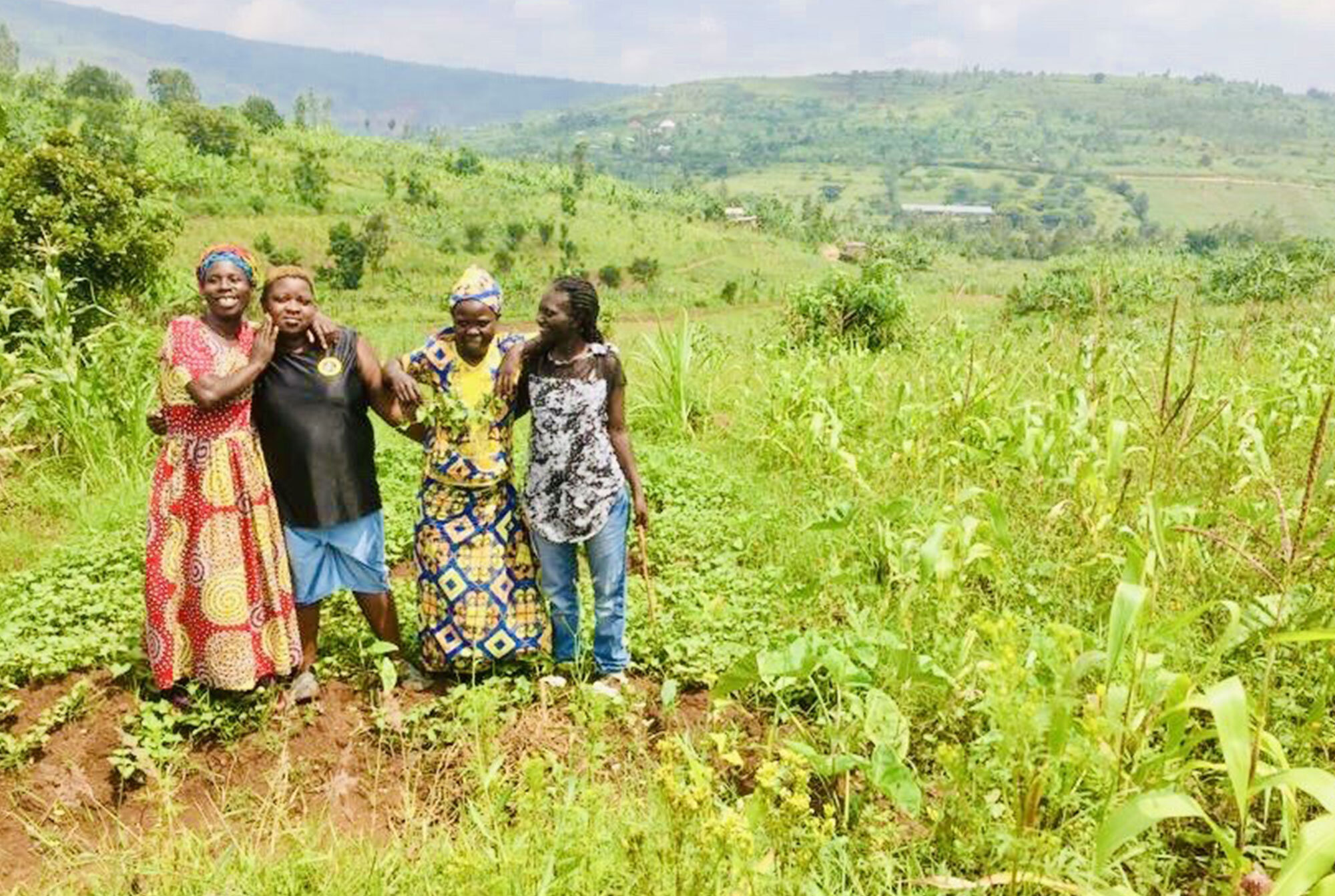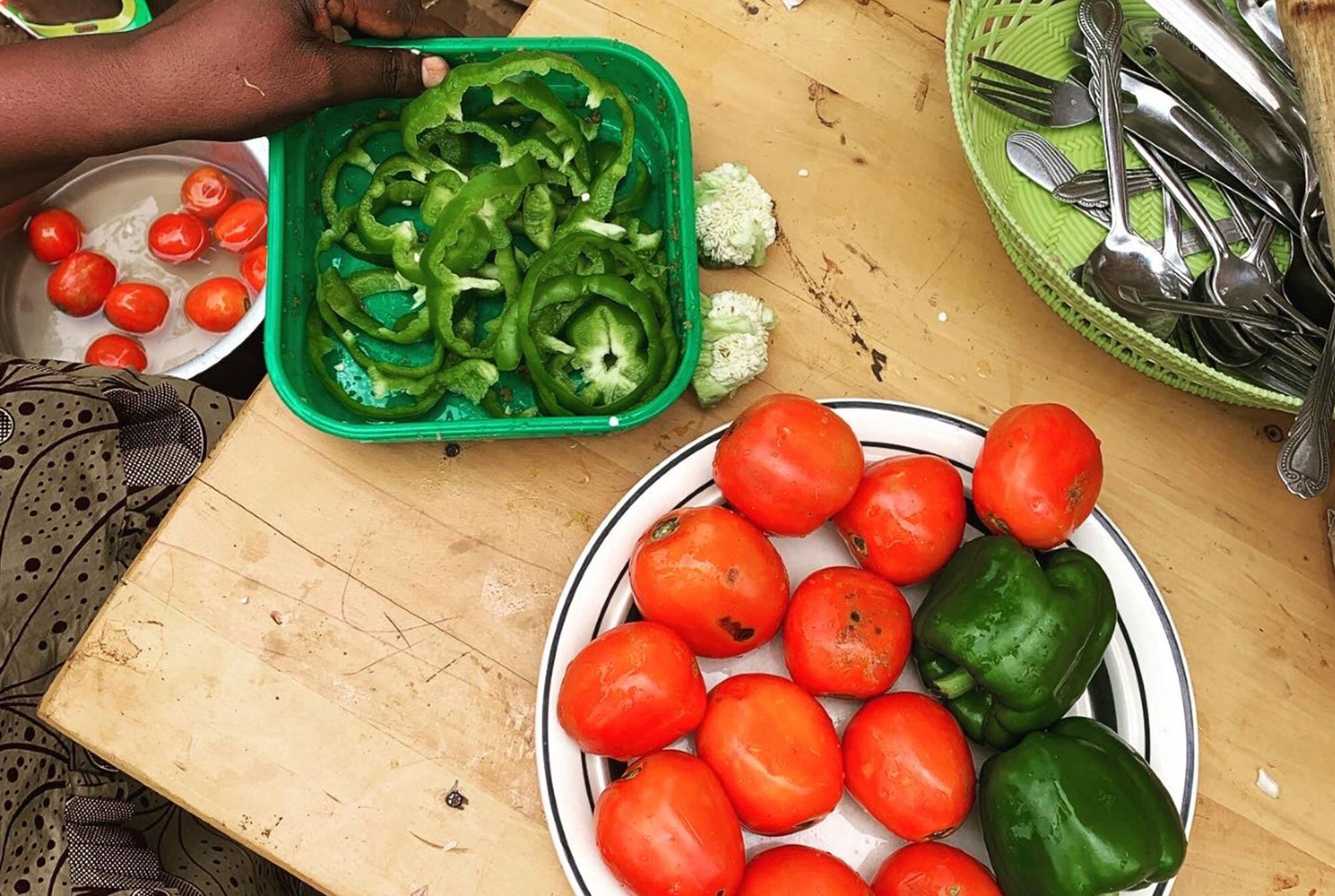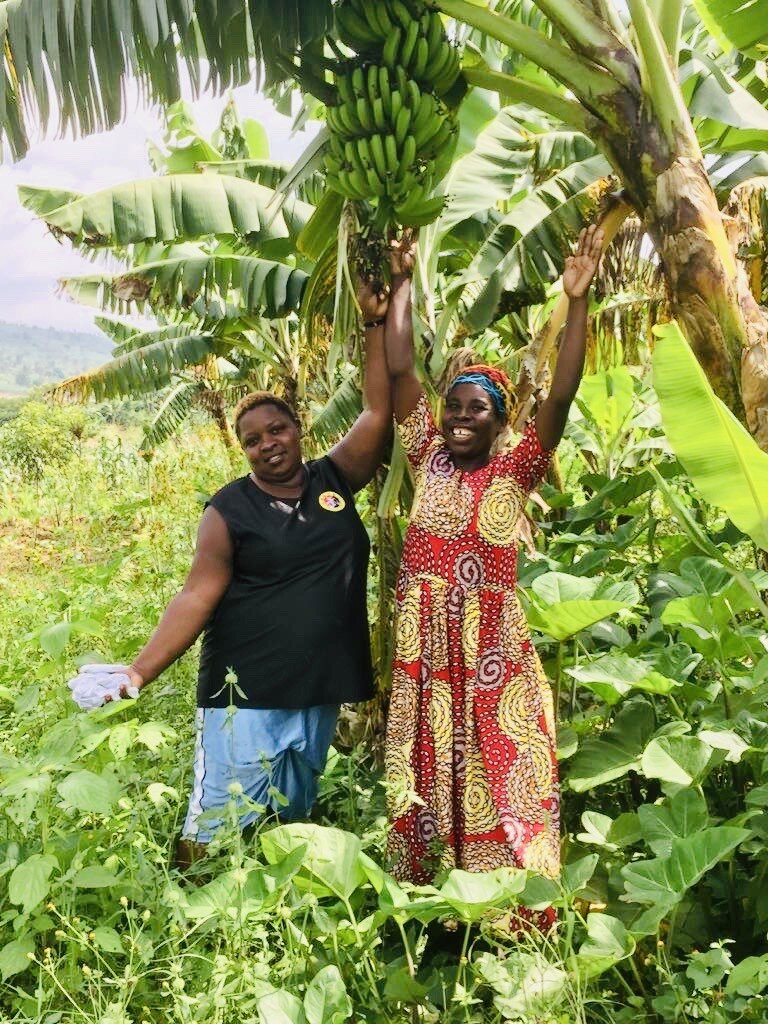Women are empowering themselves and gaining financial independence through our Land For Women project in Rwanda
Ethos
One of the lesser reported stories of survivors in conflict zones is the surge in female-headed households, where women are often caring for many dependents, without land, and with little hope for economic recovery. When we asked Olive, a survivor of Rwanda’s 1994 genocide, how we could help, the answer was simple: “give us the land to grow.”
So in 2019 we launched Land for Women, a unique program to promote the economic empowerment of women through land ownership and sustainable cooperative farming. The project is designed to lift women, their families, and communities out of poverty; to protect the environment and promote sustainable management of natural resources; and to build food security. We provide legal support, land and training, with each cooperative designed to remove up to 100 families from poverty and be completely self-sustaining within five years.
-
In June 2019 the first Land for Women cooperative, Icyizere Ruhanga, was established near Kigali in Rwanda. The shift in the fortunes of these women has been monumental. No longer paying land rent, they have a surplus of produce to sell at market and they make a profit. They set up a cooperative savings and loan scheme which has facilitated health insurance and access to healthcare. Now they can afford to send their children to school. The boost in food security from farm produce has put an end to malnutrition within their families. As landowners, their status in the home and community has been raised, helping to overcome the stigma and social isolation associated with prostitution. Many of the women have taken on leadership positions in the farm and community, and some are now training members of our second cooperative, Imboni Gikomero.
In numbers:
People - 132 individuals supported by the cooperative
Location - Gasabo District, Kigali City, Rwanda
Area - 3 plots, across 3 hectares of land
Crops - sustainably grown squash, sugar cane, beans and potatoes
-
Land for Women centres climate-smart agriculture. Our innovative land transfer model is vital to this. It demonstrates a major shift in transfers of funding, power and leadership to local actors, as well as our belief that successful poverty reduction and women’s empowerment can only be driven by the women themselves. Once they collectively own the land they farm, the cooperatives are able to move away from growing water-intensive cash crops like macadamia nuts - which have substantial ingoing costs and generate revenue, rather than food - to biodiverse, low intensity farming with edible crops grown on rotation. Some will be sold at market; others feed the women and their families. Farming like this is better for the land, better for the community, and better for the women themselves.
-
We believe education is key to dismantling barriers to empowerment. Our Land for Women curriculum, supported by Random Acts, combines sustainability and climate-smart farming with business, leadership, nutrition, women’s rights and literacy. We also integrate a 'Training the Trainers' element, to build a group of educators capable of delivering the curriculum to new LFW cooperatives, and other farmers in the community as the project expands. In particular, the women will be encouraged to share their knowledge on food and nutrition by delivering scheduled nutrition workshops and cookery demonstrations to mothers and women in the wider community.
2021 Modules include:
Climate-smart farming (including the impact of climate change on the local area, organic farming, soil fertility, carbon sequestering, and recycling and composting)
Biodiversity (including pollination ecology, supporting indigenous/endangered crops, and farm resilience)
Food security (including family nutrition, malnutrition and childhood obesity, nutrition for breastfeeding mothers, and managing food shortages)
Farm preparation and planning (including seasonal and crop planning, and cultivation)
Planting and growing (including crop care, irrigation, mulching and pest/disease management)
Harvesting (including tools and techniques, field packaging, and storage)
Post-harvest management and value addition (including managing shelf-life and waste reduction)
Animal husbandry (including livestock care and breeding, as well as beekeeping and vermiculture)
Market access (including negotiation, networking, packaging and transportation)
Finance and business development (including recordkeeping, banking and saving, budgeting and reinvesting)
Gender-focused value chains (including understanding gender in food systems, analysis, and responding to gender-based constraints)
Gender equality and women’s empowerment (including leadership skills and asset managements)
Risk management (including local natural hazard risks, weather patterns and resilience)
Agroforestry (including tree and hedgerow management for soil conversation)
Literacy (including reading, writing and numeracy)
-
In 2023-4, we’ll launch two new Land for Women cooperatives around the country, lifting a further 100 families out of poverty. We are also exploring partnerships in other post-conflict states where women are excluded from land ownership and economic empowerment.
We’ll also launch Hastings Grows. This project, based in our ‘hometown’ of Hastings, UK, will tackle food insecurity and provide opportunities for refugees and asylum seekers. It will also provide a base for Land for All, focusing on design-led collaborations to create innovative adaptive solutions including raised planting beds suitable for wheelchair users, to enable people with disabilities to participate in agribusiness and community gardening on equal terms. These tools will inform our international Land for All and Land for Women cooperatives.
By 2050 we hope to have helped 100,000 women and those living with disability into land ownership and stable incomes.
-
“I am a member of Icyizere Ruhanga Cooperative. Before I joined, I was in the lowest social class. I didn’t really have a future. I couldn’t afford to send my kids to school. I was a prostitute…actually, I thought I was nothing.
Now I am part of this cooperative, I can afford medical insurance, my kids are in school. The Cooperative Icyizere really thought of me. Now when my kids come back from school they find a meal on the table. Cooperative Icyizere led me out of solitude
”
Imboni Gikomero film by Heaven Nikita Iradukunda. Header image by Alice Kayibanda.
With thanks to our partners.



